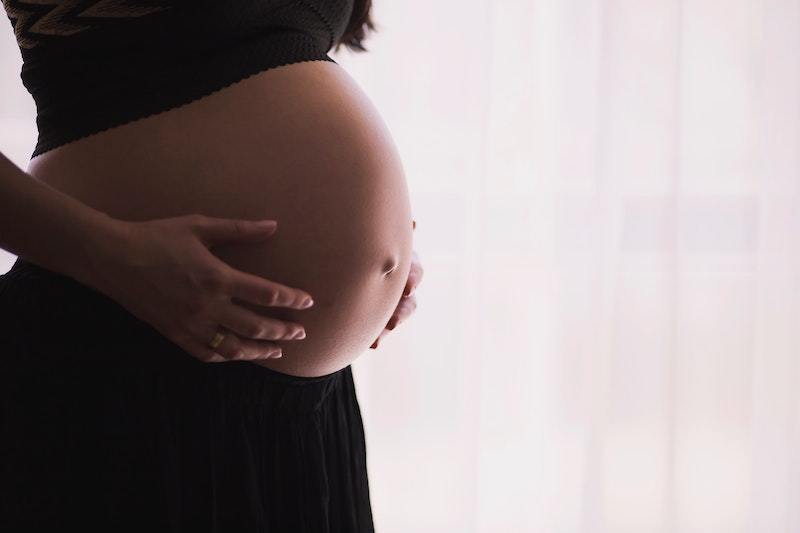How Young Influencers Are Commodifying Pregnancy

Last October, influencer Amanda Steele announced her pregnancy through a TikTok. In doing so, she joined the growing number of Gen Z influencers who will or already have become mothers before the age of 25. The list includes Kylie Jenner, Molly-Mae Hague, Taylor Giavasis, Sophia Grace Brownlee, Nara Aziza Smith, and Geneva Natalia.
These influencers seem to have followed a similar pregnancy campaign formula: Their pregnancy announcements were usually followed by a photo shoot accentuating their swollen bellies and fun TikToks that document their pregnancies. Once their baby is born, followers can expect a photo dump on Instagram spotlighting the newborn or even an engagement or wedding announcement.
But the campaign doesn’t always end with the pregnancy. Several influencers made motherhood part of their brands by launching baby skin care lines in the case of Kylie Jenner, managing baby-centered TikTok accounts like Jenna Marie Greer’s, or creating a pregnancy-themed YouTube series in the case of Aspyn Ovard, who featured two series on her channel, one for her pregnancy and one for her life with her baby.
After Kylie Jenner gave birth, she told her followers about how excited she was for the next chapter, how beautiful her pregnancy was, and most importantly, how she would actually miss being pregnant. Similarly, Steele revealed her pregnancy in October 2022 after months of radio silence. And Steele took this silence seriously; even her closest friends didn’t know what she was going through.
Amanda Steele is currently in the process of making motherhood her brand. She is publishing a pregnancy series on her YouTube channel while her TikTok account has become a hub for pregnancy content, including the jealousy she felt seeing other influencers get pregnant before her, pregnancy skin care routines, and other must-have pregnancy products.
The prospect of pregnancy as a trend is concerning for a number of reasons. There’s the way influencers’ babies are seen in promotions and ads for their moms’ businesses, like props. There’s also the fact that these young women are having a very unique experience with motherhood thanks to their wealth. For example, in one pregnancy vlog in which Amanda “gets real” with her followers about becoming a mother, she says, “It just feels right, you know? In no way is this something I’m dealing with…This is something that I truly, like, am so so excited for.”
“Deal” is a distinct and deliberate verb choice; dealing with something requires handling, it requires coping, it requires strategy. If you’re rich, pregnancy might not be something you have to deal with. You can pay people to support you, you can afford the best doctors (you can afford health care in general), you can afford time off work.
Dealing with pregnancy is what most of Amanda’s followers would have to do. And that’s perhaps the most worrying part of this trend; its insidiousness lies in its replicability. If young influencers start baby brands or maternity lines, who will buy those products? Will influencers go out of their way to appeal to older audiences or cajole their followers into following their lifestyle? Pregnancy as a sellable identity is easily reproducible: Although being a mom is hard, it’s relatively easy to get pregnant. It’s a specific base to construct an identity on while broad enough to sustain a large pool of followers.
I can’t confidently posit exactly why so many young influencers have recently become mothers. I certainly do not want to imply pregnant women shouldn’t engage in makeup tutorials or vlogs or acknowledge the good parts of their experiences. Maybe I feel spiteful toward these women because their income alone will protect them from a lot of the fears most women have about becoming pregnant. But I know one thing to be true: Influencers do have influence. There is certainly a relationship between social media consumption and eating disorders, for example. It saddens me that some girls might become pregnant despite their lack of resources and in spite of the abortion rights that are quickly fading away, because of these influencers. Hopefully, we’ll start to recognize these patterns and stop letting influencers dictate how we live our lives.
More articles by Category: Media
More articles by Tag: Social media, Reproductive rights


























